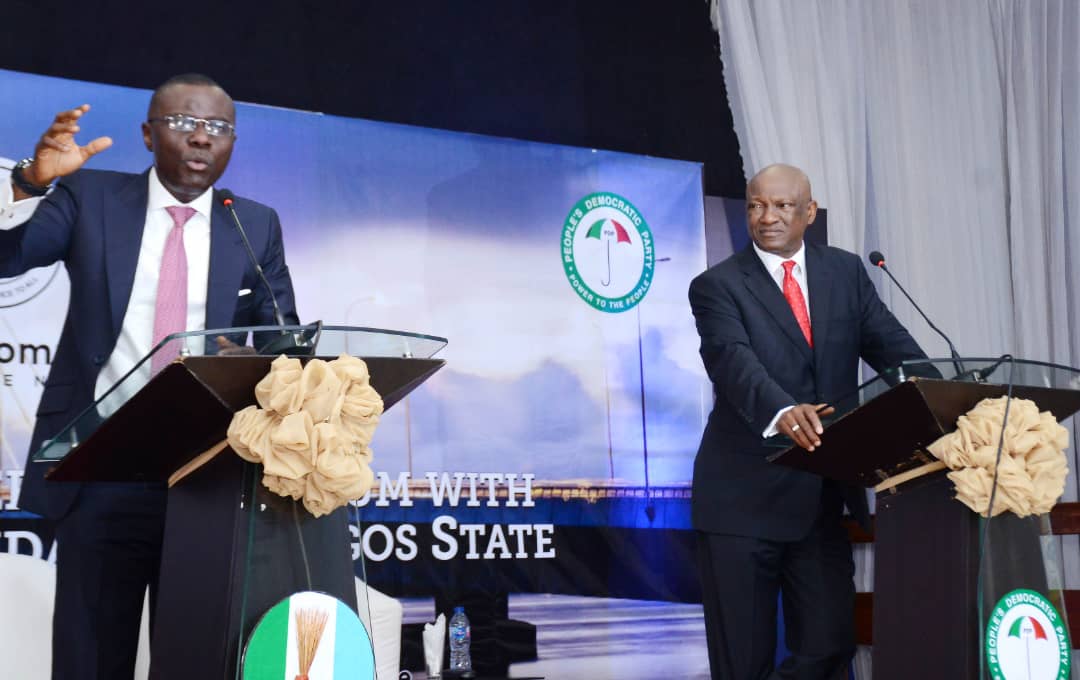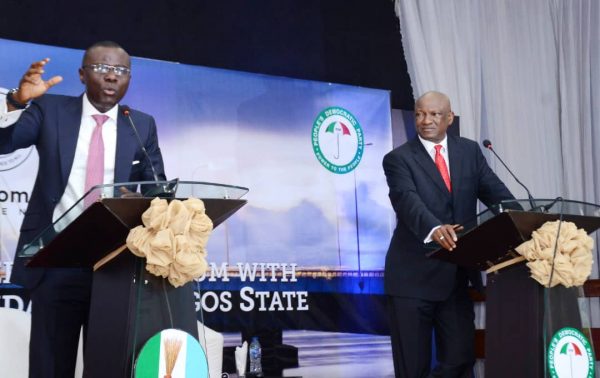One of the most important methods by which the electorate could test the readiness and preparedness of candidates contesting in a political race is via debates. And just like it happened in ancient Greece where politicians and philosophers slugged it out with each other on public policy, we discover that debates should never end in an ideal democracy.
It was on this momentum that Pastor Poju Oyemade of Covenant Christian Center surmised that The Platform should begin to provide a pedestal for testing politicians for their readiness as well.
On Sunday, 13th January, the contestant line up at The Platform had Owolabi Salis running under the banner of Alliance for Democracy (AD), Jimi Agbaje for the People’s Democratic Party (PDP), Babajide Sanwoolu of the All Progressives Congress (APC) and Babatunde Gbadamosi of the Action Democratic Party (ADP).
For almost two hours, the moderator, Victor Oladokun, and other panel members grilled the candidates on issues bordering around vehicular traffic, state internally generated revenue, technological adoption, financial transparency, ease of transportation, godfatherism, employment creation and other related matters; and the candidates responded accordingly.
As usual with debates like this, nobody expects that all the questions bothering the state will be given adequate attention or that each candidate would be given ample time to present their vaguely complex manifestos. Nevertheless, the little sound bites, the composure, confidence, as well as the ability of the candidates to simplify their complex but lofty plans for the public are all parameters that an audience will score the candidates with. After all, of what use would a campaign be if a flagship candidate has not done his/her homework, highlighting and studying what areas of governance needing focus for easier and faster development? Equally important is articulating such bailout plans into little documents sometimes concise and simple enough for the lay public to pick apart.
The last stage in communicating a bailout plan to the electorate would now be at campaign runs, town hall meetings, mega rallies and on stages such as that of The Platform where the four candidates have found themselves.
The audience, as expected, jeered whenever a candidate slipped, they clapped when a candidate was articulate with an ambitious plan for the state, they booed whenever a candidate was dodgy with the answers; but they also wowed with ululation anytime they found a candidate’s method to bail the state out of the 20-year mess of slavery sounded realistic enough.
A people deserve the government they get, they say. That notwithstanding, this platform is the first major testing the collective public would make these politicians pass through while offering them a chance to go at each other’s jugular. Yes, the candidates seized precious opportunity to throw shades and deride one another, especially with Babajide Sanwoolu whose party is the incumbent and underperforming APC.
When Sanwoolu mentioned that during his tenure, he would make available a website where the state budget would be available for public viewing, Gbadamosi of ADP did not hesitate to add that the state budget website, under Ambode’s APC government, has been down for years and that why would Sanwoolu do differently in running the state finances transparently when godfatherism and high-handedness is at play? Jimi Agbaje also did not pass on the chance to cast criticism when the opportunity came by remarking that the Lagos State Government has stubbornly refused to domesticate the Freedom of Information (FOI) Act for years, but that he will enforce same within 100 days of governance.
There is no doubt that Lagos has had its brief moments of shine under some administrators in the last 20 years, but many still argue the seeming developments that were witnessed in the past are the low-hanging fruits of governance – the most basic minimum development expected of such a city.
Even in Africa, Lagos cannot rub shoulders with Johannesburg, Accra, Cairo, Kampala and many others in terms of amenities and living standards. So what exactly has been wrong with the State? Could it be true that the State is closed up to development as it is being perpetually plundered by a select few? Could it be that the leaders contesting to manage Lagos and steer it to progress have always been bereft of the best workable ideas to prosper it?
The Platform has provided some of the vetting the electorate needed to see before making the political choice. Babatunde Gbadamosi definitely outperformed the 3 other candidates in terms of articulating his ideas, but is articulation all or even the major ingredient needed to set the lagging ball of Lagos rolling again?
The next 6 weeks to the gubernatorial elections should help to form in your mind what the other necessary ingredients for a visionary leader fit for Lagos are – finishing up what The Platform has started.
Featured image source: nairaland.com


